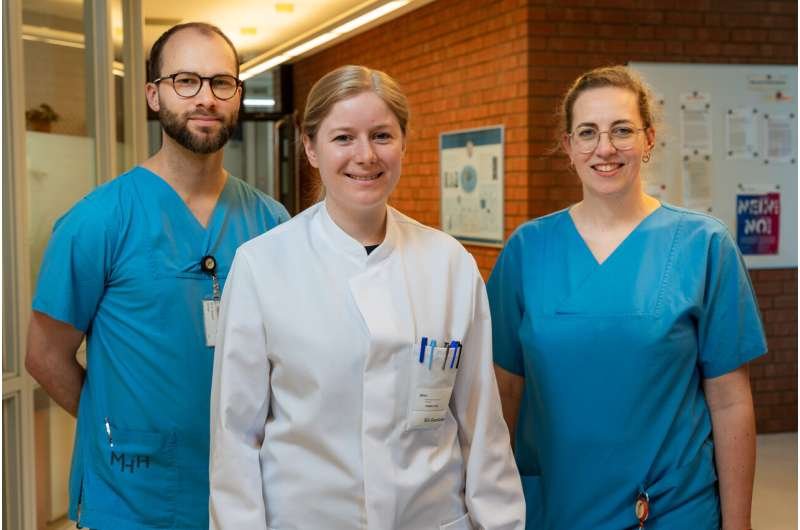
Patients with systemic sclerosis or Sjögren’s syndrome suffer from various inflammatory reactions triggered by the body’s own immune system. A team of researchers has investigated the role of certain immune cells in the pathogenesis of systemic sclerosis and Sjögren’s syndrome. They recently published their findings in the journal Rheumatology.
The group at TWINCORE, the Center for Experimental and Clinical Infection Research in Hanover, teamed up with colleagues from the Department of Pulmonology and Infectious Diseases and the Department of Rheumatology and Immunology at Hannover Medical School to conduct the study.
Systemic sclerosis is characterized by inflammation and scarring of the skin. In Sjögren’s syndrome, the body’s immune system attacks and damages the tear and salivary glands in particular. Both diseases are rheumatic diseases that affect the lungs and can cause severe damage.
This occurs about twice as often in systemic sclerosis as in Sjögren’s syndrome. The inflammation and increased formation of connective tissue (fibrosis) in the lungs make gas exchange difficult. This leads to a condition known as interstitial lung disease.
The role played by different immune cells in this process has hardly been researched to date. This is where the current work of Dr. Theresa Graalmann comes in. She is a physician in the Department of Rheumatology and Immunology at MHH and also heads the clinical junior research group “Translational Immunology” at TWINCORE.
Here, she is investigating the pathomechanisms of autoimmune diseases. “Previous work on interstitial lung disease in patients with systemic sclerosis and Sjögren’s syndrome has mainly focused on fibroblasts and other connective tissue cells,” she says.
“We have now characterized immune cells from the blood and bronchoalveolar lavages, i.e., lung washes, of patients with systemic sclerosis or Sjögren’s syndrome and compared them with those of healthy individuals,” says Christine Ehlers, a Ph.D. candidate in Graalmann’s team.
“In both patient groups, we found significant changes in the cells, especially in the T cells.” This cell type has various key functions in the immune system and can control other immune functions, in particular through the production of messenger substances.
“While the cell populations in the blood differ between the two diseases in terms of both their composition and function, the T cells in the lungs of both patient cohorts were surprisingly similar,” says Ehlers. The researchers were able to identify several characteristics of the T cells that indicated that the immune system was in a state of exhaustion.
“We also know T cell exhaustion from other diseases, such as viral infections like SARS-CoV-2 or cancer,” says Dr. Benjamin Seeliger, senior physician at the Department of Pulmonology and Infectious Diseases at the MHH. He led the research project together with Theresa Graalmann. “The findings reinforce the use of T-cell-targeted therapies and show us new possible avenues for therapeutic interventions.”
More information:
Christine Ehlers et al, T cells of patients with systemic sclerosis or Sjögren’s disease display an aberrant metabolic state and memory phenotype in blood and lungs, Rheumatology (2025). DOI: 10.1093/rheumatology/keaf198
Provided by
Zentrum für Experimentelle und Klinische Infektionsforschung
Citation:
Researchers investigate the cause of lung damage in autoimmune diseases (2025, May 27)
retrieved 27 May 2025
from https://medicalxpress.com/news/2025-05-lung-autoimmune-diseases.html
This document is subject to copyright. Apart from any fair dealing for the purpose of private study or research, no
part may be reproduced without the written permission. The content is provided for information purposes only.

